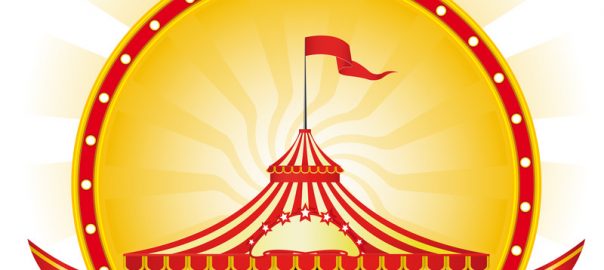
I recently attended a stage production of Circus 1903, a variety show featuring turn-of-the-century circus acts. The audience enjoyed heart-stopping performances from high-wire artists, aerialists, contortionists, and acrobats from around the world. (While this isn’t intended to be a review, I can highly recommend the show!)
Each act was an impressive display of a lifetime (sometimes generations) of muscle and skill building. But the highlight for me had less to do with the strength of the human body and more with the strength of the human spirit.
Despite the sophistication and stakes associated with the ‘tricks’, each performance went off without so much as a stumble…. until the acrobatic brothers from Italy took the stage. Brother #1 laid on his back, legs straight up with his feet in the air; and his feet became the platform that Brother #2 flipped on and around for several ooh- and ahh-inspiring minutes.
That is until Brother #2 fell from a significant height, landing squarely on his shoulder and head. Two thousand audience members gasped in unison, waiting what seemed like an eternity for Brother #1 to help him up. After some head shaking and face making, the brothers decided to resume – to thunderous applause. After successfully completing the remainder of the act, they could not help but feel the love from the appreciative and compassionate audience. And when all of the performers took the stage for a final bow, those Italian brothers received the most vigorous applause.
Since work frequently feels like a three-ring circus anyway, perhaps we should all take a lesson from these circus performers. Failure, missteps, and setbacks are a natural part of life and frequently beyond our control. But what is squarely within our control is how we respond to them. And handled well, these embarrassments and problems can actually work in our favor.
Research consistently confirms that a customer who enjoys an effective resolution to a service problem will become more loyal than a customer whose service didn’t fail in the first place. (While this isn’t an argument for intentionally falling short of expectations, it is a reassuring reality.)
Human nature roots for those who stumble but don’t give up. We all know how hard it is to fail, pick oneself up, and try again. And, as a result, we respect those who do it. But this extends far beyond the circus and customers. Employees who recognize, take responsibility, and re-do what’s necessary are applauded by management. Leaders who stumble – sometimes in a very public way – but then regroup and take a better run at it earn the loyalty and trust of employees. Falling isn’t failing….just as long as we skillfully regroup and revisit the act.
The way a circus performer responds to a stumble provides a good model for those of us performing on the ground (without a need for a net) in the workplace day to day. We just need to remember how they do it at the big TOP.
Take a pause. While it’s tempting to just reflexively jump up and engage in a do-over, this is rarely productive. Repeating what went wrong will likely produce similar results. So, allow a moment (or more, depending upon the task) to consider what happened, understand your missteps, and plot out a more effective path forward. This thoughtful pause helps you be more effective while counter-intuitively building credibility with others.
Own it. It’s tempting to slough it off and try to convince others that the misstep was just part of the act. But doing this robs you of the opportunity to activate the ‘audience’s’ natural empathy and desire to see you succeed. Taking accountability for what went wrong is powerful. Brother #2 did this through pantomime with the audience; business leaders can do this through apologies and admissions of responsibility. Because it’s all too rare in business, this kind of behavior creates a positively memorable experience for others.
Put yourself out there again. After pausing to extract learning from the experience and taking personal responsibility for what happened, you are ready to try again with the knowledge that the fall wasn’t fatal, the audience is holding their breath for you, and applause and appreciation will be ever greater when you land on your feet next time.
Image: © Can Stock Photo / borat
Business & Finance Articles on Business 2 Community(106)








